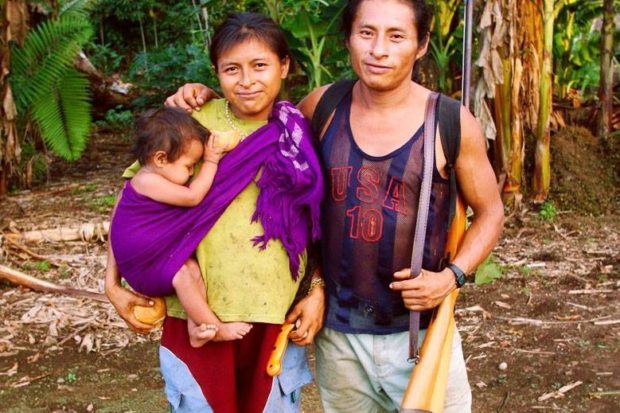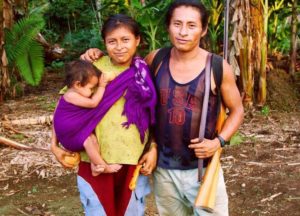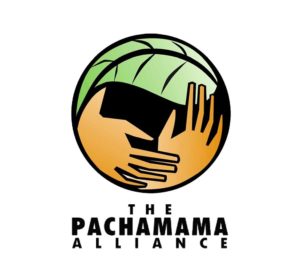
By Robert Pethoud

The earth’s forests are being cut down, fisheries are collapsing, water tables are falling, grasslands are becoming desert, glaciers are melting and all of this is taking place at a time when 2% of the world’s population owns 50% of the wealth and 3.5 billion people (half of the population) make do with 1% of the wealth. Climate change, environmental degradation, gross economic inequality and social injustice are transforming the natural world and human society in dangerous ways and with frightening rapidity.
“What kind of world are we producing?” and “How did we get here?” are two of the questions discussed in depth at a symposium entitled “Awakening the Dreamer, Changing the Dream,” developed by a group called the Pachamama Alliance.
Pachamama is a goddess revered by the indigenous people of the Andes. She is usually thought of as Mother Earth, but the word actually connotes something more expansive, including the earth, the sky, the universe and all time. The term was chosen by the founders of the Alliance—John Perkins and Bill and Lynne Twist—after meeting with elders of the Achuar people, an indigenous tribe who live in the rainforest between Ecuador and Peru.
In 1995, the Achuar reached out to request allies from North America who would “change the dream of the modern world” by shifting our Western culture’s focus away from consuming and toward honoring and sustaining life.
Indigenous peoples the world over have long realized the deep connections between all living things, an understanding that Western civilization, through advances in biology and physics, is only now beginning to appreciate. Jack Forbes, professor emeritus of Native American studies at the UC Davis, expressed that ancient wisdom well when he wrote:
I can lose my hands, and still live. I can lose my legs and still live. I can lose my eyes and still live. I can lose my hair, eyebrows, nose, arms, and many other things and still live. But if I lose the air I die. If I lose the sun I die. If I lose the earth I die. If I lose the water I die. If I lose the plants and animals I die. All of these things are more a part of me, more essential to my every breath, than is my so-called body. What is my real body?
We are not autonomous, self-sufficient beings as European mythology teaches. Such ideas are based upon deductive logic derived from false assumptions. We are rooted, just like the trees. But our roots come out of our nose and mouth, like an umbilical cord, forever connected with the rest of the world. Our roots also extend out from our skin and from our other body cavities. (Columbus and Other Cannibals, pp. 181–182)
One reason we find ourselves in our current predicament is that we in the first world have long operated on some unexamined and fundamentally flawed assumptions. Here are a few examples:
- The natural world is there to satisfy our needs and desires.
- We can create a healthy society by concentrating solely on our success as individuals.
- More is better.
- I am a separate individual; we’re not connected.
By contrast, the Pachamama Alliance affirms that human beings are not separate from each other or from nature. We are totally interrelated and our actions have consequences to all. What we do to others or to the earth we do to ourselves.
 The Pachamama Alliance also proceeds from assumptions, but ones that are more likely to prove justified:
The Pachamama Alliance also proceeds from assumptions, but ones that are more likely to prove justified:
- If present trends continue, the probable future for human life on earth is bleak.
- Humanity already possesses sufficient resources, technology and know-how to reverse these trends.
- What is missing is the sense of urgency and the popular and political will to act.
The animating vision that informs the Alliance’s work is of a world that works for everyone, a world where humanity’s presence is environmentally sustainable, spiritually fulfilling and socially just. That’s the ultimate goal of the symposia, which are designed by the Pachamama Alliance to engage people everywhere in deep conversations.
The symposia describe exciting popular movements that are emerging now, and through multimedia presentations they inspire participants to consider deeply where we go from here and how we will work together to undertake the journey. Since their inception in 2005, these symposia have involved more than 200,000 participants speaking 13 languages in 79 countries. In Fresno, the next “Awakening the Dreamer, Changing the Dream” symposium will take place on Oct. 11 from 9 a.m. to 1 p.m. at the Unitarian Universalist Church (2672 E. Alluvial Ave.).
*****
Robert Pethoud taught mathematics in public schools for 36 years. He lives in Fresno with his wife, Sylvia, and is active with the adult education and social justice teams at Wesley United Methodist Church. Contact him at pethoud@comcast.net.
